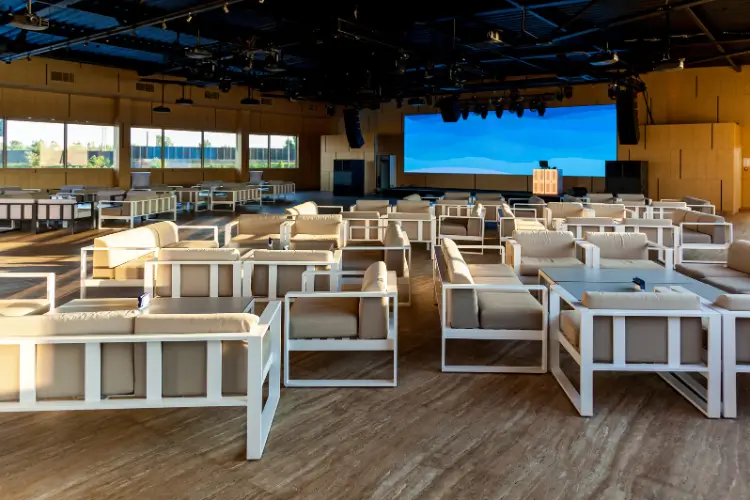Starting an event equipment rental business can be both exciting and challenging. The demand for event services is constantly growing, creating numerous opportunities for entrepreneurs in this industry. From weddings to corporate functions, the possibilities are endless. If you’re planning to launch an event equipment business, here are ten tips to get you started on the right foot.
1. Identify Your Niche
Event equipment can range from audiovisual gear to seating arrangements, tents, and stages. Before jumping into the market, it’s essential to identify your niche. Do you want to focus on corporate events, weddings, or community functions? Specializing in one area helps you stand out and create tailored services that meet specific needs.
2. Market Research
Conduct thorough market research to understand your target audience, competition, and trends in the industry. This will give you insights into what your potential customers are looking for and the best pricing strategies to adopt. Know your competition and figure out how you can offer something unique, whether it’s better service, a broader range of equipment, or lower prices.
3. Sourcing Equipment
Before you begin renting out equipment, it’s essential to know where to source it. New equipment can be expensive, and you may want to consider buying surplus equipment from auctions or businesses that are closing down. This can save you a lot of money in the initial stages of your business and provide you with a well-rounded inventory.
4. Budgeting and Financing
Starting an event equipment business requires substantial investment, especially if you’re buying new equipment. Create a budget that includes the cost of equipment, storage, transportation, marketing, and insurance. Look into financing options such as business loans, or consider leasing equipment instead of buying, to reduce your initial financial burden.
5. Create a Business Plan
A well-structured business plan is the backbone of any successful venture. Your business plan should outline your goals, market research, strategies, and financial projections. It also serves as a roadmap, helping you stay focused and make informed decisions. It’s essential if you plan on seeking investors or financing from banks.
6. Insurance and Legal Considerations
Event equipment is expensive, and accidents can happen. Ensure your business and equipment are covered by the right insurance policies. Liability insurance will protect you in case of damages or injuries caused by your equipment during an event. Also, make sure to check local regulations and obtain any necessary licenses to operate your business legally.
7. Storage and Maintenance
Storing and maintaining your equipment is a critical aspect of running an event equipment business. Make sure you have a safe and secure location to store your equipment when it’s not in use. Regular maintenance will ensure your display printing equipment stays in good condition and prolongs its lifespan, saving you money in the long run.
8. Offer Custom Packages
Offering tailored packages that meet the specific needs of different event types can set you apart from your competitors. Clients appreciate flexibility, and by bundling equipment in custom packages, you can provide them with better value. For example, a wedding package may include sound systems, lighting, and seating, while a corporate package may focus more on audiovisual equipment and stages.
9. Marketing and Promotion
To attract clients, you’ll need to promote your business. Invest in digital marketing strategies such as social media advertising, SEO guest posts, and email marketing. Create a website that showcases your services, equipment inventory, and customer testimonials. Networking with event planners and venues can also help you get business referrals.
10. Customer Service
Exceptional customer service is key to the success of your event equipment rental business. Ensure you’re available to answer inquiries, offer assistance during events, and handle any issues that may arise promptly. A happy client is likely to recommend your services to others, helping you grow through word-of-mouth referrals.
Conclusion
Starting an event equipment business requires strategic planning, investment, and a customer-centric approach. With the right market research, sound budgeting, and a focus on service excellence, you can build a thriving business in this lucrative industry. Implement these tips, and you’ll be well on your way to success.




